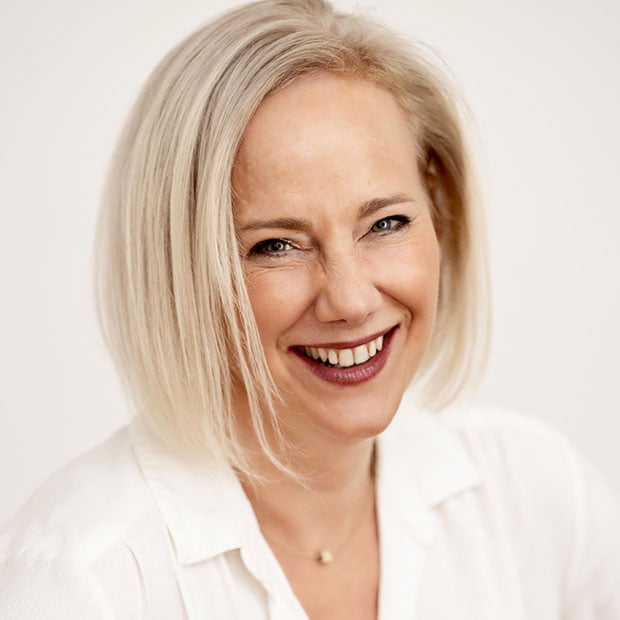Jonnydepony’s Perquy shines a light on her development strategy

Andy Fry05-10-2022
©C21Media
Helen Perquy of Brussels-based prodco Jonnydepony explores trends in the scripted business, discusses her development strategy and offers a glimpse of what she’s pitching at Connext in Antwerp this week.

Helen Perquy
Flanders-based scripted TV producer Jonnydepony is less than five years old, but the company’s co-founders are industry veterans who bring well-honed, complementary skills to the party.
“My background is mainly sales and finance,” says co-founder Helen Perquy, who previously exec produced drama series Tabula Rasa for broadcaster Eén. “My partner, Philippe de Schepper, is a showrunner whose credits before Jonnydepony included Missing Persons Unit and Homegrown.”
Perquy says the two principals came together because they shared an editorial vision: “We both want to make entertaining series that reach the widest possible audience in Flanders and beyond. But we also want to tell intelligent, values-driven stories that tap into the zeitgeist. The goal is to create artistic series that tell thought-provoking stories and appeal to a broad audience.”
A case in point is Blackout, a 10-part series about the sabotage of a nuclear power plant. Commissioned by VRT and supported by public funding, the show has been sold by LS Distribution into markets including the US, Canada and Australia. “It’s a series about the importance of energy, which we made before the current geopolitical crisis started,” recalls Perquy. “It is about how the whole political approach to energy has been mismanaged and the impact this has on people’s lives.”
Another key show, structured differently, is Transport, an eight-parter that looks at corruption in the meat industry. “This was actually a YLE Finland show that we came on board,” says Perquy, “so financially it was a little more complicated. But it’s another show that fits our editorial philosophy of values-based entertainment. Transport secured backing from Screen Flanders and was licensed to our local streaming platform Streamz.”
Both the above productions are limited series, but Perquy says Jonnydepony’s ambition is to create returning franchises – and the next project on the company’s slate may prove to be the long-running franchise she is looking for.

Ten-part drama Blackout was commissioned by VRT
Titled Arcadia, it tells the story of a post-apocalyptic society in which citizens’ lives are tightly controlled by government rules. People are allocated a personal score based on pre-determined criteria, and this impacts their quality of life. “Everything is fine if you hit targets,” says Perquy, “for example, around fitness, productivity and trustworthiness. But if your score drops too low, you are expelled from Arcadia.”
The underlying theme is the importance of protecting democracy, “but we tell the story through the eyes of a family where the father tries to cheat the system by altering the scores of two of his daughters. He is banished and the family lose their home as a result.”
Arcadia, which is currently in edit, is an expensive show by Flanders standards. “We don’t usually make dystopian dramas in Flanders because you really need a budget of around €1m [US$983,000] an episode and it’s hard to generate more than about €700,000 per episode. But it was an idea we passionately believed in, so I found a way to make the financing work.”
The key, she says, was to set the show up as a coproduction between VRT and NPO (Netherlands), while also tapping Belgian public money. “We will only ever go down the coproduction route if we can make it authentic in terms of storytelling,” says Perquy.

Transport is an eight-parter that aired on YLE in Finland
“We would never make creative choices to please investors, because that way you lose the heart of the series. The way we did it with Arcadia was to create a blended family – part Flemish, part Dutch. Afterwards, we secured a collaboration with WDR/SWR in Germany, but that doesn’t have any involvement in the story.”
Despite the elevated budget, the Arcadia backers have already greenlit a second season. “At first, everyone was a bit reluctant because of the price. But after seeing the rough cuts, they loved it. In the meantime, we are finalising a deal with a distributor to handle rest-of-world sales.”
The company is also at the script stage on a project called I Was a Cop in the 80s (8×48’). Perquy calls it “a really fun show that looks at a harsh era when our cops were trained in covert techniques by the Americans to deal with issues like drugs and communist infiltration. It follows a central character who ends up as a bigger criminal than the people he is supposed to catch.”
With Streamz taking rights in Belgium and Amazon Prime Video already on board for the Netherlands, the show will be pitched to potential financiers at the Flanders Audiovisual Fund’s annual Connext event taking place in Antwerp this week.
On the whole, the streamers have been a good addition to the market, says Perquy: “They represent a new opportunity for us because they allow you to have wilder ideas. We’re able to tackle tougher themes that appeal to younger audiences.” Still on younger audiences, the company is also working on an original drama for kids called The Girl in My Diary.
One interesting aspect of the company’s work is its emphasis on diverse talent both on screen and behind the camera. Most shows have strong female involvement, while I Was a Cop in the 80s features a black lead character. “For us, diversity is important. But it has to be embedded into the story from the start to be truly authentic,” says Perquy.














.jpg)




























